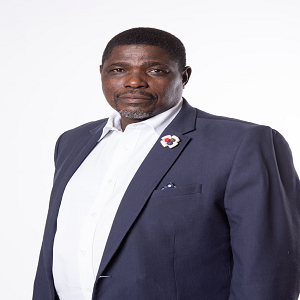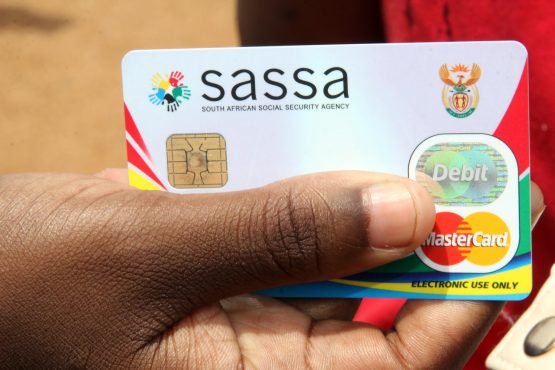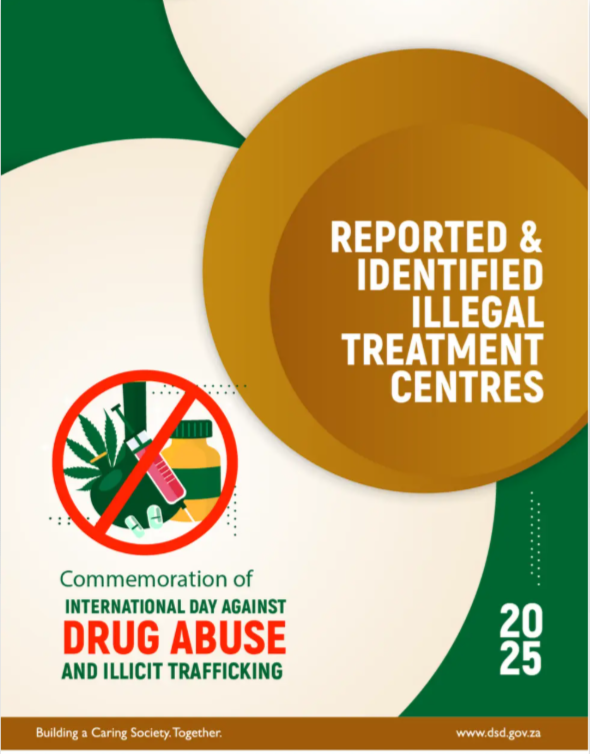Department of Social Development Leaders
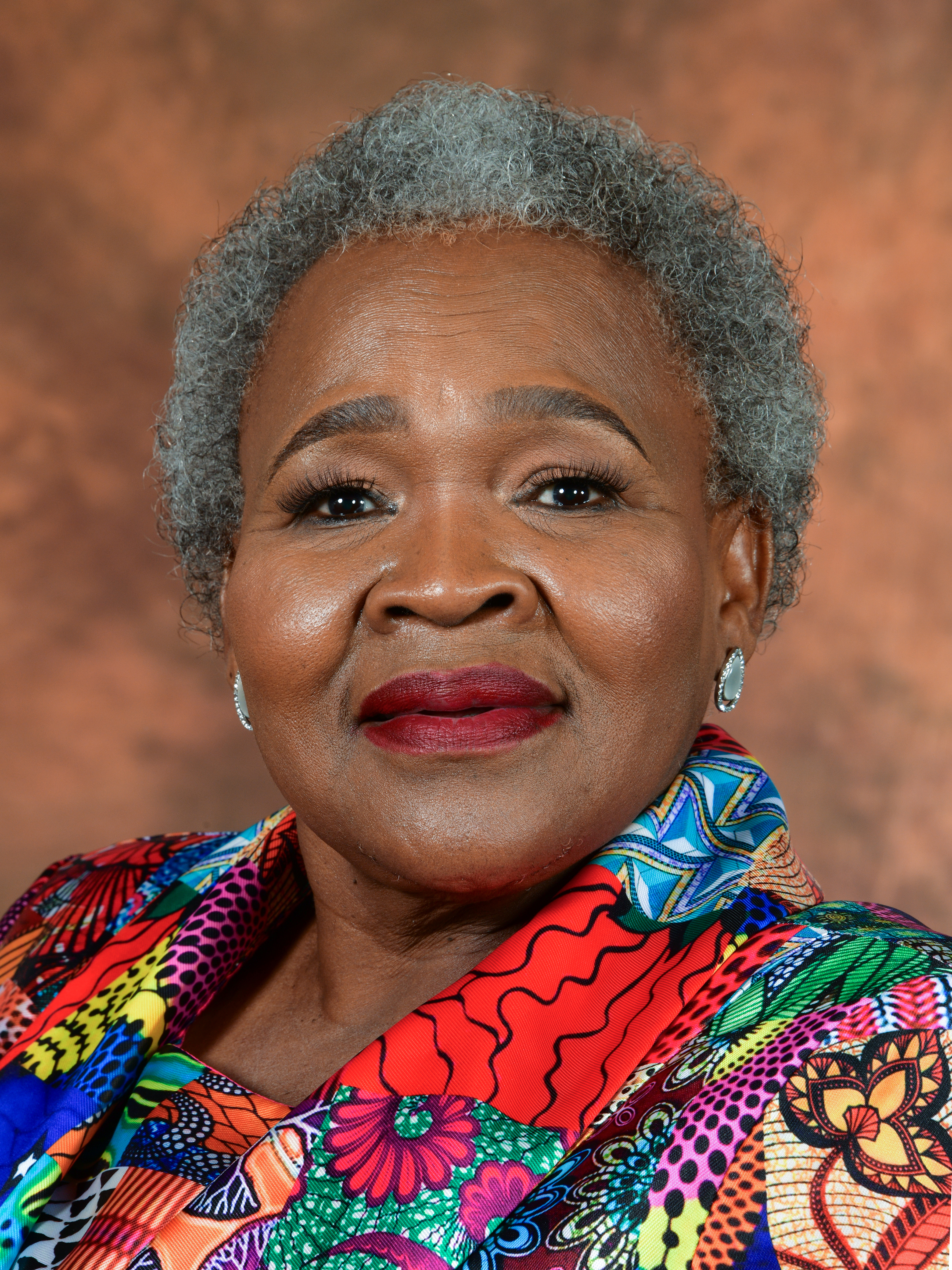
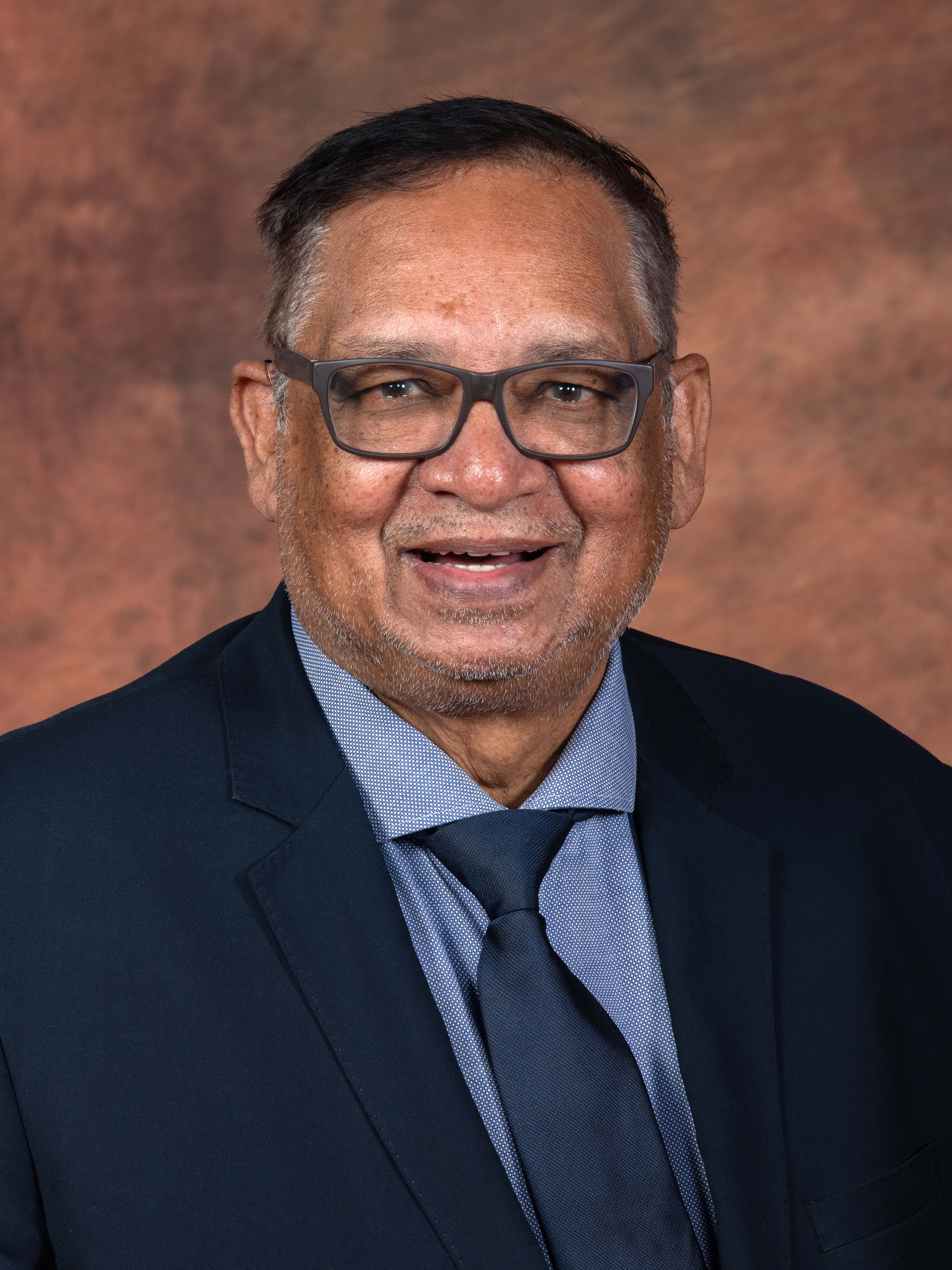
Dsd Reports Strong Q2 Performance As Climate Shocks And Gbvf Pressure Social Services
By Precious Mupenzi
- Parliament’s Committee on Social Development has heard that the Department of Social Development achieved 86% of its planned targets in the second quarter of the 2025/26 financial year, up from 82% in the previous quarter.
- These results come during a period that the department is facing increasing pressures due to climate-related disasters, economic constraints, and the national crisis of gender-based violence and femicide.
- Minister Sisisi Tolashe also told the committee that progress was being made in capacitating provinces to improve service delivery for older persons, children, teenage parents and persons with disabilities, despite ongoing shortages of social workers.
The Department of Social Development has reported an improvement in its overall performance for the second quarter of the 2025/26 financial year, achieving 86% of its planned targets, up from 82% in the previous quarter.
This was revealed during a virtual briefing to Parliament’s Portfolio Committee on Social Development, led by the Minister of Social Development, Nokuzola Sisisi Tolashe, and supported by Deputy Minister Ganief Hendricks, Director-General Peter Netshipale, South African Social Security Agency (SASSA) CEO Themba Matlou, and National Development Agency (NDA) Acting CEO Raphaahle Ramokgopa.
Presenting the department’s Second Quarter Performance and Financial Report, covering the period 1 July to 30 September 2025, Minister Tolashe emphasised that the improved performance comes amid growing social pressures driven by climate-related disasters, economic constraints, and the national crisis of gender-based violence and femicide (GBVF).
“The impact of climate change is literally at our doorstep,” said the minister, citing record heatwaves, destructive floods, loss of life, displacement of families and disruptions to schooling across several provinces.
She noted that climate change continues to act as a “threat multiplier”, deepening existing social and economic vulnerabilities and placing increased strain on social development services.
Visible leadership during disasters
Minister Tolashe reaffirmed government’s commitment to visible leadership in times of crisis, in line with President Cyril Ramaphosa’s directive.
“As a portfolio, we have heeded the president’s call that leadership must be visible and present when communities are in distress,” she said, adding that the department is working closely with provincial departments and partners to provide necessary interventions in affected areas.
GBVF declared a national disaster
The minister welcomed President Ramaphosa’s recent decision to officially classify gender-based violence and femicide as a national disaster, describing it as a decisive move that strengthens the mandate of key departments, including social development.
She indicated that the classification will accelerate interventions such as the expansion of shelters for survivors, and enhanced coordination through the Inter-Ministerial Committee on GBVF and Substance Abuse, led by the Department of Women, Youth and Persons with Disabilities.
Parliament will be briefed in detail on these interventions in the coming weeks.
Audit outcomes and corrective action
Addressing governance matters, Minister Tolashe acknowledged the qualified audit opinion received for the 2024/25 financial year, relating mainly to transfers and subsidies administered through SASSA.
She explained that challenges included weaknesses in identifying ineligible beneficiaries and insufficient supporting documentation. In response, the department has developed a comprehensive Audit Action Plan, outlining root causes, corrective controls, implementation timelines, and updates to standard operating procedures.
Strengthening service delivery and policy development
The minister highlighted progress in capacitating provinces to improve service delivery for older persons, children, teenage parents and persons with disabilities, despite ongoing shortages of social workers.
She also noted steady progress in policy development, including work on the Universal Basic Income Grant, which formed part of the committee’s agenda.
Importantly, the department confirmed that all social assistance grant funds for the quarter were transferred to SASSA in line with approved vote drawings, fully meeting targets under its largest programme.
Oversight and adoption of committee programme
The portfolio committee meeting also considered the adoption of outstanding minutes and the draft Fourth Term Committee Programme, reinforcing Parliament’s oversight role over the social development sector.
Minister Tolashe concluded by expressing appreciation for the constructive engagement with the committee and reaffirmed the department’s commitment to serving vulnerable communities.
“It is only through robust engagement with Parliament that we can serve the interests of the people of South Africa,” she said, before handing over to the director-general for a detailed presentation.
Joint Media Statement: Strengthening South Africa–Zimbabwe Cooperation On Border Management And Social Development
JOINT MEDIA STATEMENT: STRENGTHENING SOUTH AFRICA–ZIMBABWE COOPERATION ON BORDER MANAGEMENT AND SOCIAL DEVELOPMENT
Pretoria, 23 January 2026: The Border Management Authority (BMA) and the Department of Social Development (DSD) participated in a high-level diplomatic engagement at the Embassy of the Republic of Zimbabwe in Arcadia, Pretoria, on 21 January 2026, marking the official introduction of the newly appointed Embassy representative, Mr Lovemore Mazemo. The engagement, held as a meet-and-greet session, brought together representatives from the BMA, the DSD and the Zimbabwean Embassy, reflecting a shared commitment to strengthening bilateral relations and enhancing cooperation between South Africa and Zimbabwe on border management, social development, travel and immigration-related matters.
Discussions focused on critical cross-border social protection challenges, particularly the handling and safeguarding of unaccompanied minors who cross through the Beitbridge Port of Entry without the requisite travel documentation. The meeting also addressed broader concerns related to irregular cross-border movements by adults, including cases where individuals possess valid passports but deliberately avoid entering through designated ports of entry. The engagement builds on the Memorandum of Understanding signed in December 2025 between the Minister of Social Development, Ms Nokuzola Sisisi Tolashe, and her Zimbabwean counterpart, which provides a formal framework for cooperation on social development priorities, child protection and cross-border coordination.
The Commissioner of the Border Management Authority, Dr Michael Masiapato, reaffirmed that the BMA and Zimbabwean border management authorities continue to work closely and effectively together and assured the Embassy of continuity in cooperative border management efforts between the two countries. He emphasised the importance of tackling common challenges collectively and noted that the meeting explored areas of collaboration to raise awareness on migration issues affecting travellers, with the objective of improving compliance with immigration requirements. Embassy representative, Mr Mazemo, expressed appreciation for the commitment shown by both the BMA and the DSD in addressing the increase in cases involving unaccompanied minors. He indicated that the Embassy was encouraged by the seriousness with which the issue is being handled and confirmed that Zimbabwean authorities are equally committed to addressing the matter.
He further highlighted the value of joint awareness campaigns targeted at specific traveller groups to ensure that travellers are well informed about the travel regulations of both countries. The meeting underscored the importance of sustained dialogue, collaboration and integrated approaches to addressing migration challenges in the Southern African region, particularly through enhanced information sharing, joint public awareness initiatives and proactive stakeholder engagements with key role players such as transport operators, parents and guardians.
The parties further agreed on the establishment of a joint technical task team to proactively address operational and policy issues related to cross-border movements, with a particular focus on the protection of minors. The engagement concluded with a shared commitment to continued cooperation and regular engagement between the two countries. The Zimbabwean Embassy also conveyed its condolences to the Government and people of South Africa following the recent school transport tragedy involving learners.
Media enquiries may be forwarded to:
Acting Head of Communication at the Department of Social Development, Ms. Sandy Godlwana on 082 678 5634 / This email address is being protected from spambots. You need JavaScript enabled to view it.
Executive Manager: Communications and Stakeholder Management at the Border Management Authority, Ms. Mmemme Mogotsi on 0728564288 / This email address is being protected from spambots. You need JavaScript enabled to view it.
Historic Matric Results Highlight The Impact Of Social Assistance Programmes
By Abednigo Bangani
- The 2025 matric results reaffirmed the importance of sustained investment in social protection and strong inter-sectoral collaboration, ensuring that every learner has the opportunity to succeed.
- Of the 927 143 matric learners who wrote their National Senior Certificate examinations in 2025, 68.5% were social grant beneficiaries.
- The results showed that 71% of the social grant beneficiaries who wrote the end-of-school exams earned passes that enable access to further education and training.
The Matric Class of 2025 has made history, achieving an 88% National Senior Certificate (NSC) pass rate, the highest in South Africa to date.
This milestone, marking a 0.7 percentage point increase from 2024, was celebrated nationwide when Basic Education Minister Siviwe Gwarube announced the results on 12 January 2026 at the Mosaïek Church in Fairlands, Johannesburg.
Approximately 927 143 candidates wrote the National Senior Certificate examinations across all examining bodies, 68.5% (634 705 learners) are social grant beneficiaries, a slight decrease from 79% (697 502 social grant learners) in 2024.
These figures underscore the significant role government social assistance programmes play in supporting learners and advancing education as a tool to break the cycle of poverty.
In terms of achievement, out of the 634 705 social grant beneficiaries, 35.3% (224 086 learners) secured Bachelor’s passes, qualifying them for university studies.
Another 23.9% (151 495 learners) achieved Diploma passes, while 11.8% (74,942 learners) earned Higher Certificate passes.
Combined, 71% of social grant beneficiaries earned passes that enable access to further education and training, highlighting the positive impact of social protection interventions on learner outcomes.
Breaking it down by grant type, Child Support Grant beneficiaries made up the largest share of candidates and achievements, followed by Foster Care Grant beneficiaries, with Care Dependency Grant recipients forming a smaller but meaningful group.
Commenting on the results, the Chief Executive Officer of the South African Social Security Agency (SASSA), Themba Matlou, congratulated the Class of 2025, praising their resilience and determination.
“The historic pass rate achieved by the Class of 2025 demonstrates what is possible when learners are supported and remain committed to their goals. We congratulate all matriculants on this outstanding achievement and encourage them to remain focused and confident as they pursue the next chapter of their lives.
“South Africa’s future is brighter because of disciplined, determined young people,” said Matlou.
SASSA, under the leadership of the Department of Social Development, continues to support vulnerable learners through social assistance programmes that promote access to education and improve learning outcomes.
The 2025 matric results reaffirm the importance of sustained investment in social protection and strong inter-sectoral collaboration, ensuring that every learner has the opportunity to succeed.
Minister Tolashe to Lead Back-to-School Campaign and Flood Impact Assessment in Emakhazeni
Pretoria, 21 January 2026: The Minister of Social Development, Ms Nokuzola Sisisi Tolashe (MP), will on Thursday, 22 January 2026, undertake a Back-to-School Campaign visit to Emakhazeni Boarding School in Mpumalanga, as part of government’s continued commitment to child protection, learner wellbeing, and education support at the start of the 2026 academic year.
The visit forms part of the national Back-to-School Campaign, aimed at promoting safe learning environments, encouraging learner attendance and retention, and strengthening collaboration between government, schools, parents, and communities in safeguarding the rights and dignity of children. During the school visit, Minister Tolashe will engage with school management, the School Governing Body (SGB), educators, and learners, including the Matric Class of 2026, to assess the state of readiness of the school, reflect on learner support needs, and reinforce government’s message that child protection is everyone’s responsibility.
In addition to the school engagement, the Minister will also visit flood-affected areas in Emakhazeni, including Kaalbooi Farm, Ward 5, Machadodorp, following recent heavy rains, to assess the extent of the damage and the impact on affected families. The purpose of the visit is to activate government’s social support response in the area. The South African Social Security Agency (SASSA) will be mobilised to provide Social Relief of Distress (SRD) to affected community members, while the Department of Social Development (DSD) will activate psychosocial support services for families and individuals impacted by the floods.
The Minister will be accompanied by the Emakhazeni Local Municipality Executive Mayor, Cllr N.A. Mashele, council leadership, local councillors, officials from the Department of Social Development, the Department of Education, SASSA, as well as traditional and community leadership. The Back-to-School Campaign is implemented under the Child Protection 365 Programme, reinforcing government’s year-round commitment to protecting children in all spaces, including schools, homes, and communities.
Media are invited to attend and cover the visit as follows:
Date: Thursday, 22 January 2026
Time: 10:00 – 11:30
Venue: Emakhazeni Boarding School, Emakhazeni Local Municipality, Mpumalanga Province
ISSUED BY THE NATIONAL DEPARTMENT OF SOCIAL DEVELOPMENT
Media enquiries may be forwarded to the Acting Head of Communication, Ms Sandy Godlwana on 082 678 5634 / This email address is being protected from spambots. You need JavaScript enabled to view it.
The Class Of 2025 Provide Inspiration And Encouragement
Monday, 19 January 2026
Dear Fellow South African,
Last week, the Minister of Basic Education announced that the Matric Class of 2025 had made history by achieving the highest pass rate in our country’s history. More than 650,000 learners passed the National Senior Certificate, achieving a pass rate of 88%.
We congratulate all the learners and their teachers, families and communities for this great achievement. We applaud every learner who sat these exams.
The matric results have shown a steady improvement over many years, both in the quantity and the quality of the achievements. They have contributed to a dramatic increase in the number of South Africans older than 20 who have a matric qualification, increasing from 30% in 2002 to 52% in 2024.
This outstanding achievement shows the value of the investment we are making in education and the efforts we have made to ensure that all children, regardless of their background and gender, have access to quality education.
Global experience has shown that one of the most effective ways to reduce poverty is to ensure that girl children receive a good education. It is therefore significant that in 2025 more girls sat for the matric exams than boys, and that the pass rates of boys and girls were much the same. A higher proportion of girls attained admission to Bachelor studies than boys, and nearly twice as many obtained distinctions. This bodes well for the continuation of their studies at universities and colleges.
It is also significant that more than two-thirds of all bachelor passes came from schools in the most disadvantaged communities, classified as quintiles 1-3. This is both a testament to the determination of these learners and their teachers, and to the effectiveness of policies like no-fee schools and the child support grant. Taken together with the expansion in recent years of funding for tertiary students from poor backgrounds, these results give us encouragement that many of these young people will be able to lift themselves and their families out of poverty.
We are encouraged by the fact that 90% of learners with special education needs passed matric and 52% achieved bachelor passes, both higher than the national average. Our task is now to ensure that more learners with special needs are able to write matric exams.
As we applaud these great results, we must acknowledge that challenges remain.
Of the 1.2 million children who started grade one in 2014, only 778,000 made it through to grade 12 in 2025. That’s nearly half a million young people who left school before finishing. As we strive to improve the quality of our matric results, we must work harder to ensure that more children complete their schooling.
Another challenge is the drop in performance in subjects like mathematics. While more learners are taking these subjects, we have seen a drop in the pass rates for mathematics and accounting. These are subjects that our learners need to excel at if they are to succeed in a rapidly changing economy.
In working to address these challenges, we are starting with the foundations of learning. In the same week that the results came out for the class of 2025, the class of 2037 started their first day of grade one.
From this moment, they are starting their preparations for matric and beyond. That is why are placing greater emphasis and making more investment into the early years of schooling. We have made Grade R compulsory and embarked on an ambitious drive to register and provide subsidies to more early childhood development centres. We are strengthening early grade reading, improving teaching materials and focusing on teacher development in the early grades.
By investing in children at the start of their school career, by giving them a solid educational foundation, we are preparing them for success. We are working to ensure that they all finish their schooling, that they excel in matric and that they go on to thrive in everything they do.
The achievements of the Class of 2025 must inspire and encourage all the years of learners that are to follow.
With best regards,


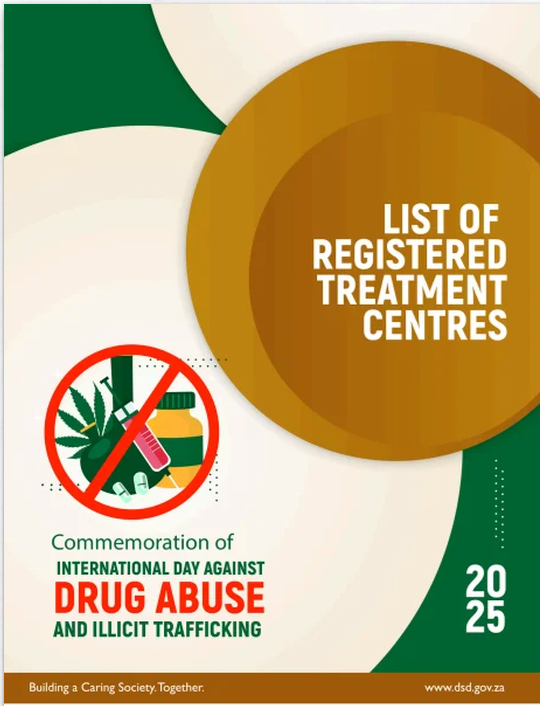

 0
0 